Ohio DUI Lawyer
Police officers may pull you over for speeding, crossing a yellow line, running a stop sign, texting while driving, or driving in an erratic manner. However, it is likely that such a traffic stop may be due to suspected impaired driving.
Put more simply, the police officer is pulling you over under the belief that you are driving while under the influence of alcohol or drugs. It is imperative that you immediately arrange for an Ohio DUI lawyer to be present with you during any police questioning or interrogation. While Ohio calls this law OVI – Operating a Vehicle while Impaired – most people are more familiar with the term DUI - Driving Under the Influence.
Police officers may only pull you over when there is reasonable suspicion of criminal activity, or probable cause for a traffic violation. These types of traffic stops are called pretextual traffic stops, and they are constitutionally valid under Ohio and federal law. Sobriety checkpoints, often called DUI checkpoints, are also valid.
Under Ohio DUI laws, the following is illegal:
- R.C. 4511.19: No person shall operate any vehicle, streetcar, or trackless trolley within this state, if, at the time of the operation, any of the following apply:
- The person is under the influence of alcohol, a drug of abuse, or a combination of them.
- The person has a concentration of eight-hundredths of one percent or more but less than seventeen-hundredths of one percent by weight per unit volume of alcohol in the person’s whole blood.
- The person has a concentration of ninety-six-thousandths of one percent or more but less than two hundred four-thousandths of one percent by weight per unit volume of alcohol in the person’s blood serum or plasma.
- The person has a concentration of eight-hundredths of one gram or more but less than seventeen-hundredths of one gram by weight of alcohol per two hundred ten liters of the person’s breath.
- The person has a concentration of eleven-hundredths of one gram or more but less than two hundred thirty-eight-thousandths of one gram by weight of alcohol per one hundred milliliters of the person’s urine.
- The person has a concentration of seventeen-hundredths of one percent or more by weight per unit volume of alcohol in the person’s whole blood.
- The person has a concentration of two hundred four-thousandths of one percent or more by weight per unit volume of alcohol in the person’s blood serum or plasma.
- The person has a concentration of seventeen-hundredths of one gram or more by weight of alcohol per two hundred ten liters of the person’s breath.
- The person has a concentration of two hundred thirty-eight-thousandths of one gram or more by weight of alcohol per one hundred milliliters of the person’s urine.
If a police officer pulls you over and determines that you are operating your vehicle while intoxicated from alcohol and/or drugs, you will be arrested immediately. It is important to realize, however, that your constitutional rights are in full force at this time. When it comes to police questioning, silence is often the best strategy.
If you have been arrested and charged with a DUI in Ohio, you need an experienced DUI lawyer at your side. An Ohio DUI lawyer can assist in maximizing your chances of obtaining favorable results in your DUI case.
What Happens Immediately After a DUI Arrest?
In Ohio, police officers may arrest you for a DUI. In doing so, they will likely place the offender in handcuffs and into the back of their squad car. The offender will then be processed according to police protocol. This process includes:
- Booking
- Fingerprinting
- Photographing
- A blood-alcohol concentration (BAC) test (by breath, blood, or urine)
- Police interrogation
- Bond hearing within 24 hours of arrest
Questioning By A Police Officer in Relation to a DUI Arrest
During a traffic stop, and occasionally after arresting a driver for a DUI, police officers begin asking a series of questions. The driver is not required to answer these questions and may request that an Ohio DUI lawyer be present during all questioning.
This legal right to remain silent stems from the Fifth Amendment to the United States Constitution, which protects citizens from self-incrimination. When the driver immediately requests an attorney following their arrest, police questioning may not proceed until the attorney is available and present. The driver must provide a valid driver’s license, a current registration, and proof of insurance. Otherwise, you are not required to answer any investigative questions by police officers.
Any evidence that is obtained through improper police questioning or interrogation may be suppressed in a criminal trial.
Meeting with Legal Counsel
When a police officer begins to ask the driver questions during the traffic stop, or after an arrest, the driver should politely decline to answer until their attorney is present.
The police officer must allow a reasonable time for the driver to consult with an Ohio DUI lawyer prior to answering any investigative questions. If you are on the side of the road, or in the breath test room, the officer does not have to bring your Ohio DUI lawyer to you before reading you the implied consent rights and offering you the test.
Speak With an Ohio DUI Lawyer Today
If you respond incorrectly during police questioning, you can make an already unfortunate situation worse. The best thing to do is to have a criminal defense lawyer by your side every step of the way. You should feel free to contact an Ohio DUI lawyer via telephone or email for a free consultation.
REQUEST A FREE
CONSULTATION
OHIO CRIMINAL LAWYER
WHAT
CLIENTS SAY
I contacted Mr. Norman with short notice before my court date. I explained to him my plight, and he advised me on the possible options to me. His fees were more than reasonable, so I happily hired him. Upon going to court , he got me the absolute best possible deal, and I didn’t even have to say a word. It’s best to stay out of trouble, but if you need an attorney, I highly recommend hiring William Norman. Better to hire an attorney now, than regret not hiring him later.
J. Kelly
Will is an experienced professional. He did his homework on my case and got me the exact deal I hoped for. He kept everything real simple with me so I could clearly understand all the in and outs of the trail and I never felt out of the loop with everything.
J. Cleary
Mr. William Norman has helped me. He responds back to you pretty quickly and definitely knows what he's talking about. It also seems like he is very well respected and known in the court rooms which I thought was amazing. I highly recommend him.
T. Taylor
Worth every penny. Did better than expected. Humble and professional which is not expected. Will reccomend highly!
J. Wolf
I have witnessed firsthand Will’s AGGRESSIVE and THOROUGH representation of his clients. He is passionate and caring about his clients and their cases. I have referred several cases to him and always get 100% positive feedback. He recently represented a close family member with a complex case that he got dismissed! He will not only represent you to the fullest extent, he will educate you and make sure you are fully aware of what is going on. He doesn’t settle, he demands results! Highly recommend this lawyer!
Abeir Faraj
Local Cleveland Attorney


